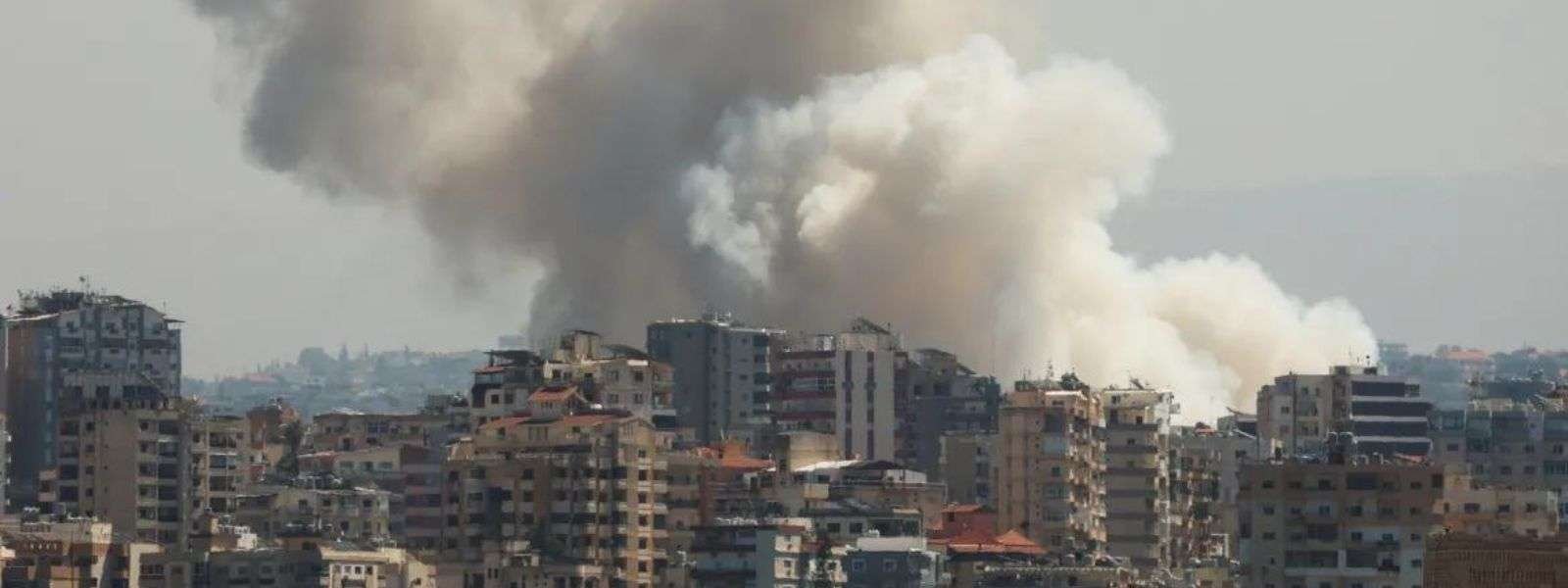
Israeli strikes kill almost 500 in Lebanon
Israeli air strikes killed at least 492 people, including 35 children, in Lebanon on Monday, September 23, the health ministry said, in the deadliest cross-border escalation since the war in Gaza erupted. Arab states sharply condemned Israel over the sharpest escalation in nearly a year of Israel-Hezbollah hostilities.
Israel said it hit about 1,300 Hezbollah sites in southern and eastern Lebanon in 24 hours, including a "targeted strike" in Beirut. A source close to Hezbollah said the strike in the Lebanese capital targeted Ali Karake, the group's third in command. Hezbollah said Karake was alive and had moved to safety.
State media reported new raids in eastern Lebanon, while Hezbollah said it targeted five sites in Israel. In the coastal Israeli city of Haifa, people were seen running for cover when air raid sirens sounded.
The strikes by the "Israeli enemy" in southern Lebanon and the Bekaa and Baalbek in the east "killed 356 people, including 24 children and 42 women, and injured 1,246", said the health ministry. Health Minister Firass Abiad said "thousands of families" had been displaced.
World powers implored Israel and Hezbollah to pull back from the brink of all-out war, with the focus of violence shifting sharply from Israel's southern front with Gaza to its northern border with Lebanon. Egypt – a key mediator in the Gaza conflict – urged the UN Security Council to intervene following Israel's "dangerous escalation", while the Iraqi appealed for an urgent meeting of Arab states on the sidelines of the UN General Assembly in New York on September 24.
Israeli army chief Herzi Halevi said the strikes hit combat infrastructure Hezbollah had been building for two decades. Israeli Defence Minister Yoav Gallant called Monday "a significant peak" in the operation. "This is the most difficult week for Hezbollah since its establishment – the results speak for themselves," he said. "Entire units were taken out of battle as a result of the activities conducted at the beginning of the week in which numerous terrorists were injured."
Prime Minister Benjamin Netanyahu said Israel was acting to change the "security balance" in the north by preempting threats. Explosions near the ancient city of Baalbek in eastern Lebanon sent smoke billowing into the sky.
Hezbollah, a powerful political and military force in Lebanon, has exchanged near-daily fire with Israel in support for its Palestinian ally Hamas. Its deputy chief, Naim Qassem, said Sunday the group was in a "new phase, namely an open reckoning" with Israel and was ready for "all military possibilities." He spoke after Hezbollah said it fired rockets at military sites near Haifa and later launched "dozens of rockets" at two Israeli bases "in response to the Israeli enemy's attacks on the south and the Bekaa."
The attack came after an Israeli strike on southern Beirut Friday killed its elite Radwan Force commander, Ibrahim Akil, and coordinated communications device blasts that Hezbollah blamed on Israel killed 39 people and wounded almost 3,000 on Tuesday and Wednesday.
Since the cross-border exchanges between Israel and Hezbollah began in October, tens of thousands of people on both sides have fled their homes.
An Israeli military official, who cannot be further identified under military rules, said the operation seeks to "degrade threats" from Hezbollah, push them back from the border, and then to destroy infrastructure.

